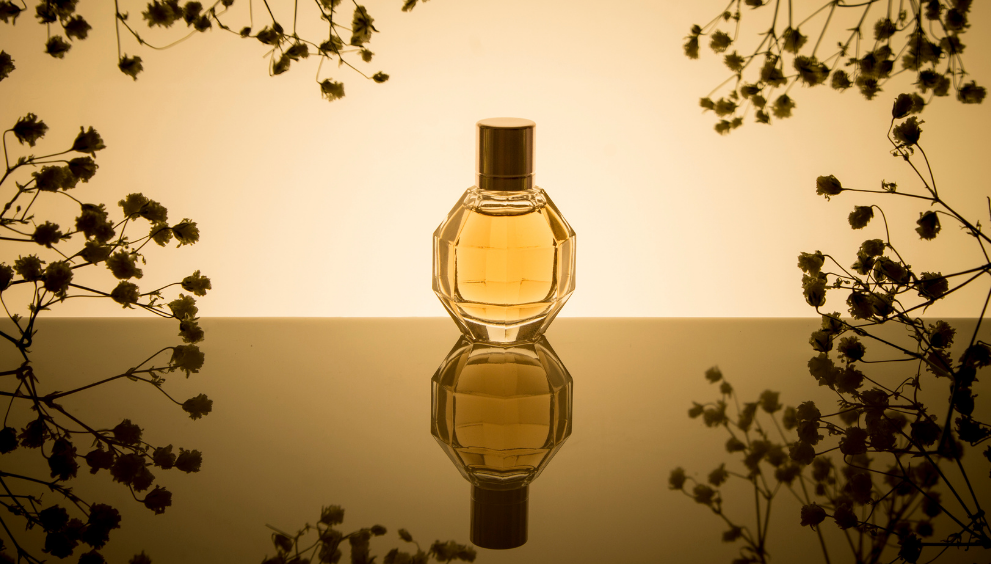Headings
Floral notes are among the most important components in the perfume world, representing femininity and elegance. These notes shape the character of a fragrance and make it unforgettable. In this article, we will explore five iconic floral notes centered around the keyword “floral notes.” Each floral note has its unique characteristics and appeals to both perfume lovers and flower enthusiasts alike.
1. Rose
Rose is one of the most iconic floral notes in the perfume world. It offers a blend of elegance and romance, featuring both feminine and slightly masculine freshness, and often plays a leading role in many fragrances.
- Usage: Rose is commonly used in women’s perfumes, but it can also be found in some unisex fragrances. The soft and sweet notes of rose form the heart of the fragrance, perfectly balancing with other notes.
- Aroma Profile: The rose note has a sweet and slightly spicy aroma profile. This note adds warmth and depth to the fragrance, typically blending well with other floral notes, such as jasmine and violet, to create a rich bouquet.
- Historical Context: The rose has been a symbol of love and beauty for centuries. It has been used in perfume-making since ancient times, popular in both Egypt and Rome. Today, particularly in the Middle East and France, rose oil production is a major industry.
- Benefits: In addition to its beautiful scent, rose has a reputation in skincare. With its anti-inflammatory properties, it helps to calm the skin. Alongside using rose in perfumes, rosewater or rose oil is frequently included in skincare routines.
2. Jasmine
Jasmine stands out as another iconic floral note in the perfume industry. With its sweet and slightly spicy aroma, jasmine is the essence of romantic and enchanting fragrances.
- Usage: Jasmine is commonly found in both women’s and unisex perfumes, providing a refreshing and uplifting sensation, especially in warmer months.
- Aroma Profile: The jasmine note features an intense, sweet, and rich fragrance. Typically combined with other floral notes, it creates a deep sweetness at the heart of the fragrance. When blended with rose and lily, it creates an alluring floral bouquet.
- Historical Context: Jasmine has been used since ancient times, originating from the Middle East. It is especially valued in India and China, where it has been linked to love and sensuality throughout history.
- Benefits: Jasmine is renowned for its moisturizing effects on the skin and is commonly included in skincare products. Additionally, it is widely used in aromatherapy for its stress-relieving and mood-enhancing properties.
3. Lily
Lily is a floral note known for its elegance and sophistication within the perfume world. It provides both freshness and sweetness to fragrances.
- Usage: Lily is frequently used in women’s perfumes and can also be found in unisex fragrances.
- Aroma Profile: The lily note carries an intense and rich sweetness. When combined with other floral notes, it adds depth and character to the fragrance. It pairs well with rose and jasmine, creating a rich floral experience.
- Historical Context: The lily has historically symbolized purity and beauty. It held significant importance in ancient cultures, often associated with art and literature.
- Benefits: Lily possesses soothing and nourishing properties for the skin. When used in skincare, it helps to rejuvenate and nourish the skin.
4. Violet
Violet emerges as a mysterious and romantic floral note in the perfume world, offering a light and sweet aroma.
- Usage: Violet is often used in women’s perfumes and can create a refreshing effect. It can also be found in some men’s fragrances.
- Aroma Profile: The violet note has a sweet and earthy fragrance. When blended with other floral notes, it enhances the depth of the fragrance. Particularly, when combined with rose, jasmine, and lavender, it creates an enchanting aroma.
- Historical Context: Historically, violet has been a symbol of love and loyalty. It has been valued since ancient Greece, where its essence was used to create delightful fragrances.
- Benefits: Violet oil is known for its soothing properties for the skin. When applied, it helps reduce irritation and promotes a healthy complexion.
Conclusion
Floral notes hold a significant place in the perfume world, offering an effective way to create elegance and romance. Iconic floral notes like rose, jasmine, lily, and violet enrich fragrances, reflecting the wearer’s mood and personality.
By experimenting with these floral notes, you can discover a fragrance that best represents you and envelop yourself in these unique scents every day. Remember, your fragrance is not just a scent; it’s an expression of who you are.




